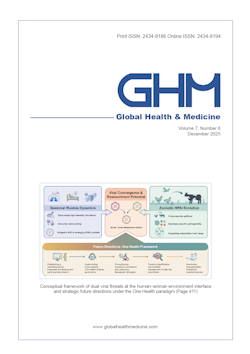Global Health & Medicine 2022;4(1):14-20.
Present status and perspective of perioperative chemotherapy for patients with resectable pancreatic cancer in Japan
Yamada Y
Adjuvant chemotherapy is the standard treatment for patients with resectable pancreatic ductal carcinoma. Perioperative chemotherapy has been given in less than 50% of patients with potentially resectable pancreatic cancer in Japan. A modified combination regimen of 5-fluorouracil, leucovorin, irinotecan, and oxaliplatin (mFOLFIRINOX; oxaliplatin 85 mg/m2, leucovorin 400 mg/m2, irinotecan 150 mg/m2 on day 1, and 5-fluorouracil 2,400 mg/m2 over 46 hours every 14 days for 12 cycles) is now preferred worldwide because it mitigates concerns regarding toxicity and tolerance. Adjuvant chemotherapeutic regimens employ S-1 in East Asia, whereas other areas use FOLFIRINOX, capecitabine plus gemcitabine, or gemcitabine monotherapy. Adjuvant chemoradiotherapy is not recommended because randomized controlled trials and meta-analyses revealed no survival benefit compared with chemotherapy. Preoperative chemotherapy with S-1 and gemcitabine combination chemotherapy for patients with resectable/borderline resectable pancreatic cancer significantly increased survival compared to upfront surgery in a recent clinical trial. Perioperative outcomes, including R0 resection rate and post-operative morbidity, were not significantly different between groups. When compared to upfront surgery, neoadjuvant S-1 and gemcitabine treatment significantly reduced the number of pathological nodal metastases in patients who underwent resection. Japanese guidelines therefore recommend neoadjuvant chemotherapy for patients with resectable pancreatic cancer. Preoperative chemotherapy can increase R0 cases by down-staging with higher relative dose intensity of chemotherapy. In contrast, patients who do not respond to chemotherapy may miss resection opportunities and would therefore be at a disadvantage. Therefore, it is critical for both patients and doctors that predictive markers for the response to chemotherapy are identified.
DOI: 10.35772/ghm.2021.01015







